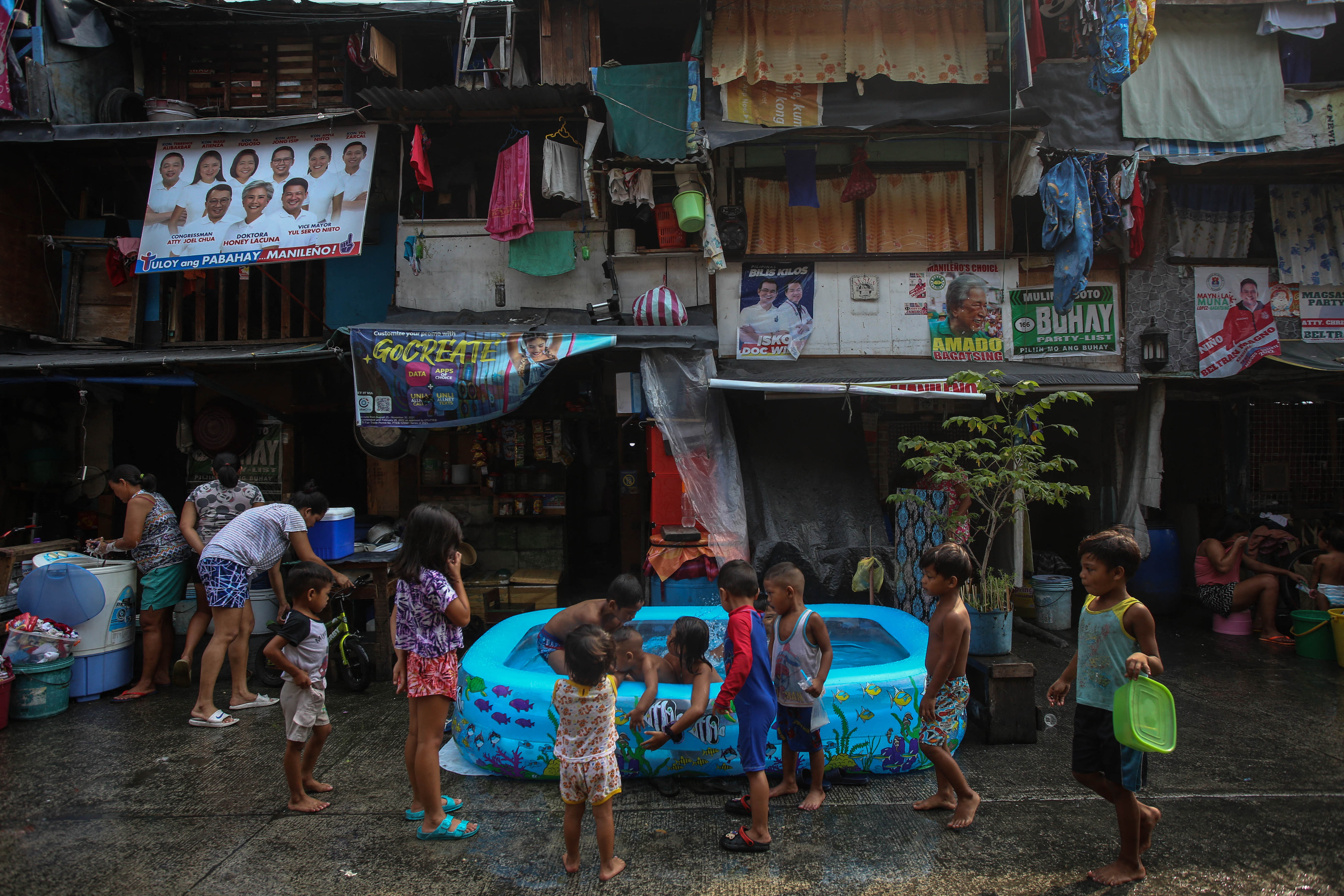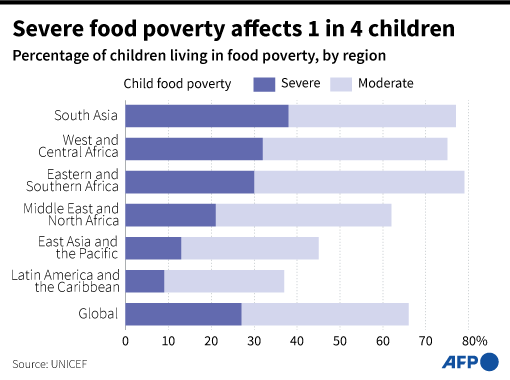
MANILA - An estimated 2 million children in the Philippines are suffering from severe food poverty, being unable to get enough healthy food, according to a new UNICEF report released on Thursday.
The global report Child Food Poverty: Nutrition Deprivation in Early Childhood said that around 181 million children worldwide under five years of age, or one in four, are experiencing severe child food poverty, making them up to 50 percent more likely to experience wasting, a life-threatening form of malnutrition.
The report added that consumption of unhealthy products was exceptionally high in the Philippines, where more than one in five children consumed unhealthy food and sweet beverages, despite these children consuming two or fewer food groups per day
In the Philippines, the report said that around 18 percent, or 2 million, of children are severely food-poor. Four out of five children in this situation are fed only breastmilk and a starchy staple, such as rice, corn, or wheat. Less than 10 percent of these children are fed fruits and vegetables. And less than 5 percent are fed nutrient-dense foods such as eggs, fish, poultry, or meat.
The report also revealed that the Philippines is still one of the countries that account for 65 percent of the total number of children living in severe child food poverty.
ALSO READ: UNICEF: Philippines grapples with measles, pertussis outbreaks
The report added that consumption of unhealthy products was exceptionally high in the Philippines, where more than one in five children consumed unhealthy food and sweet beverages, despite these children consuming two or fewer food groups per day.
"Children living in severe food poverty are children living on the brink. This can have an irreversible negative impact on their survival, growth, and brain development," said UNICEF Representative to the Philippines Oyunsaikhan Dendevnorov, warning that children who consume just rice and some vegetable soup a day are up to 50 percent more likely to experience severe forms of malnutrition.
According to the report, nearly half, or 46 percent, of all cases of severe child food poverty, are among poor households where income poverty is likely to be a significant driver. In comparison, 54 percent, or 97 million children live in relatively wealthier households, among whom poor food environments and feeding practices are the main drivers of food poverty in early childhood.

The factors fueling this crisis include food systems that fail to provide children with nutritious, safe, and accessible options, families' inability to afford healthy foods, and parent's failure to adopt and sustain positive child-feeding practices.
READ MORE: Infectious pertussis disease rising in Philippines with 54 deaths
In many places, cheap, nutrient-poor, ultra-processed foods and sugar-sweetened beverages are aggressively marketed to parents and families and are the new normal for feeding children, the study said.
The report analyzed the impacts and causes of dietary deprivation among the world's youngest people in nearly 100 countries and across income groups.


